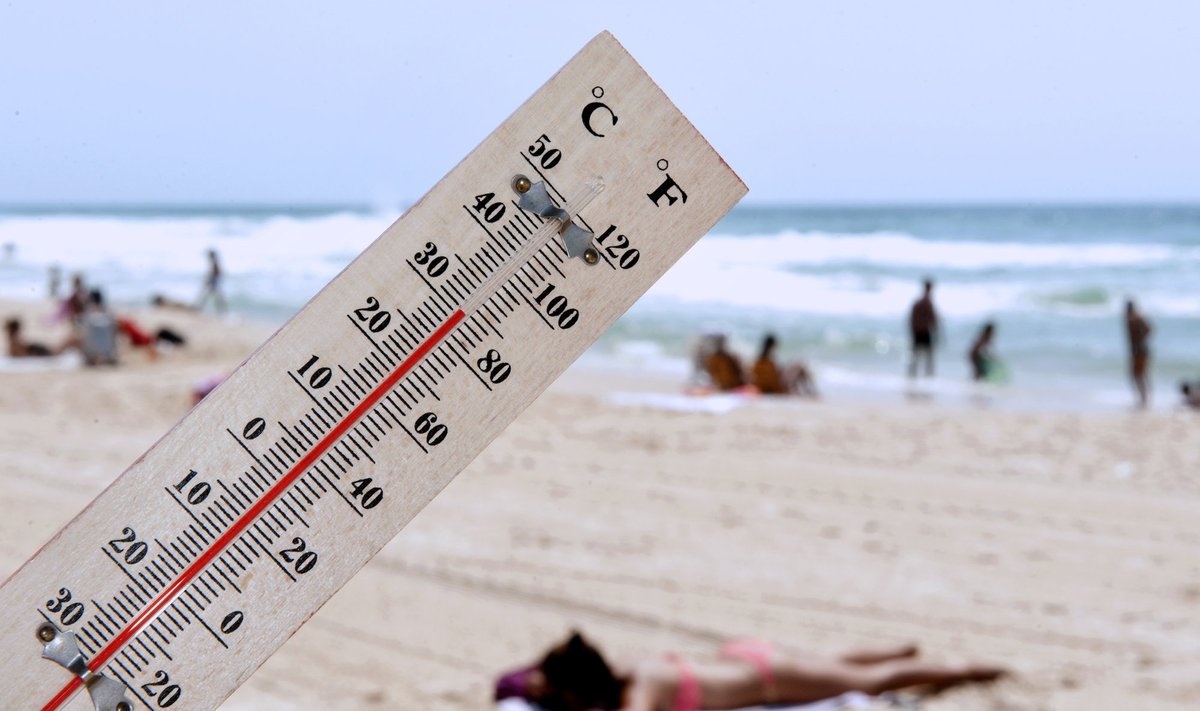Southern and Eastern Europe expects record temperatures as a heat wave hits. In the coming days in Italy, the air temperature could reach 48 °C, which could lead to an increase in the number of deaths from the heat. On Tuesday (July 11) in the vicinity of Milan, where the air temperature reached 40 °C, a road worker fell and died.
In Croatia, France, Greece, Spain and Turkey, temperatures can also reach 40 °C. This is partly due to Cerberus moving across the continent from the Sahara.
Why is it so hot in Europe?
Europe has experienced extreme temperatures this year as the planet experiences an El Niño phenomenon and greenhouse gas emissions lead to a warming climate.
But the latest highs were exacerbated by an anticyclone dubbed Cerberus. This high pressure area originated in the Sahara and then moved through northern Africa into the Mediterranean.
It is believed that the name of this heat wave – Cerberus (in honor of the three-headed dog with ferocious eyes, which in Greek mythology guards the gates of the underworld) – was invented by the Italian Meteorological Society. But in fact, the community has nothing to do with this name.
“It’s an unofficial name and we don’t use it at all,” says Luca Mercalli, president of the society, adding that he thinks it’s somewhat sensational. The name was actually chosen by the Italian meteorological site iLMeteo, as confirmed to WIRED by Antonio Sano, founder of iLMeteo.
How hot will it be in Europe?
The Italian islands of Sardinia and Sicily could hit 48 °C in the coming days, according to the European Space Agency (ESA), which could be “the hottest temperature ever recorded in Europe”. The current record was set in 2021 in Sicily, where the temperature reached 48.8 degrees Celsius.
Rome, Bologna and Florence are among the 10 Italian cities currently on a red alert for extreme heat.
The Spanish Meteorological Service said that in the southeastern regions of the Iberian Peninsula, where an alarm was also declared due to extreme heat, air temperatures could reach 45 °C. Soil temperatures in some parts of the country exceeded 60 °C.
In Greece, temperatures of up to 44 °C are predicted in some parts of the country in the coming days. Sun visors are to be installed on the Acropolis in Athens and ambulances are to be alerted as tourists faint from the heat.
Authorities have banned visits to nature reserves and forests to reduce the risk of wildfires, and municipalities have opened air-conditioned zones in public buildings so people can take shelter from the heat.
The temperature in Cyprus can rise to 42 °C, in Montenegro up to 41 °C, and in Serbia and Romania on Monday it can be 39 °C. 38 °C is expected in some parts of Croatia; Firefighters struggled to contain a wildfire near the coastal town of Sibenik yesterday.
In France, by the end of the week the air temperature can also reach 37 °C.
In Prague (Czech Republic), on Saturday the air temperature can reach 36 °C, which is significantly higher than the average temperature for this time of year at 22 °C.
How long will Cerberus last?
The extreme heat wave caused by Cerberus is predicted to last in the Mediterranean for about two weeks.
But this is not the end of Europe’s weather problems. According to the World Meteorological Organization (WMO), this month the hottest week on record was recorded on the continent, and June was the warmest on record.
The UN agency has warned that there is a 90% chance that El Niño will persist until the end of the year at moderate strength or higher. This global weather phenomenon occurs when the waters in the Pacific become much warmer than usual. It could set a new average temperature record, leading to increased heatwaves and hurricanes.
A recent Greenpeace report on the impact of climate change on the weather in Spain highlights the urgent need to reduce greenhouse gas emissions into the atmosphere. The most important condition for achieving this goal is the development of renewable energy sources and the reduction of dependence on fossil fuels.
How to protect yourself during the heat in Europe?
Europe’s summer heatwave has killed 61,000 people, according to a recent study. The elderly, women and residents of the Mediterranean countries were most affected.
As this summer begins to break records for heat, people are advised to drink regularly and avoid caffeine and alcohol. Strenuous work in the middle of the day should also be avoided.
You should also watch for signs of heat stroke. Symptoms include confusion due to insufficient blood flow to the brain, redness and dryness of the skin, lack of sweating, and in the most extreme cases, organ failure, seizures, and seizures.

